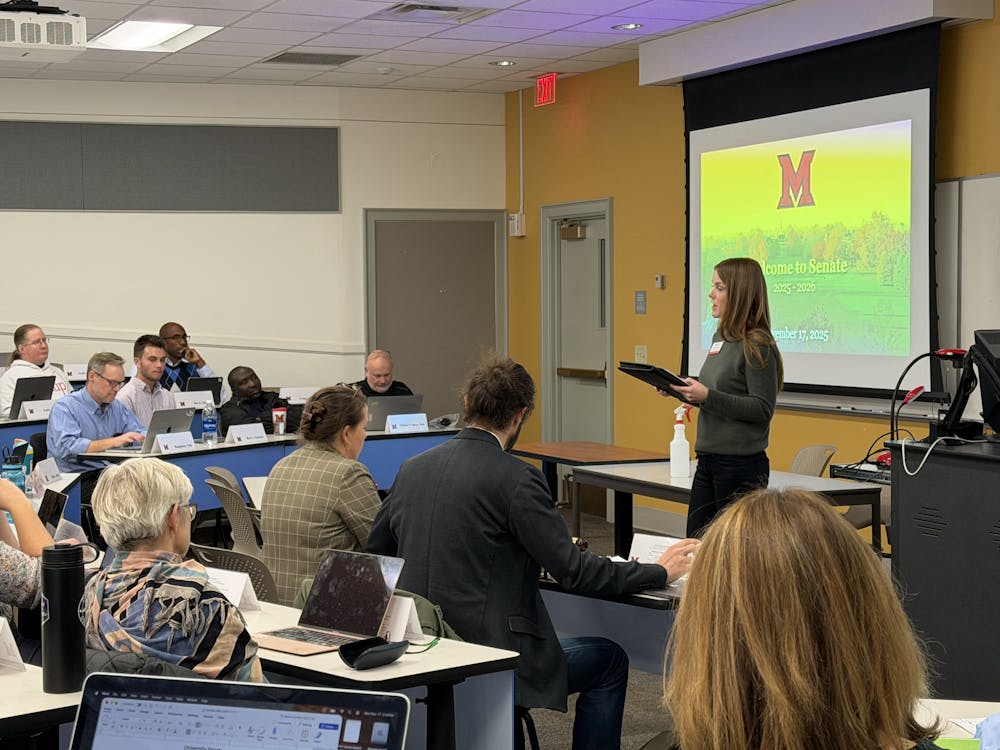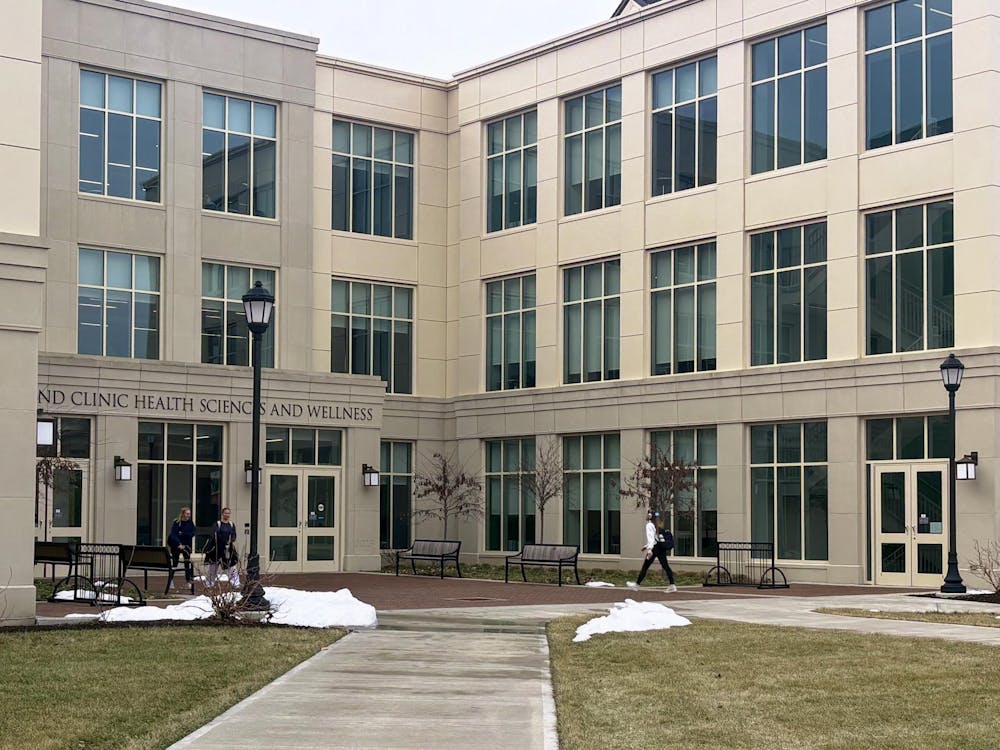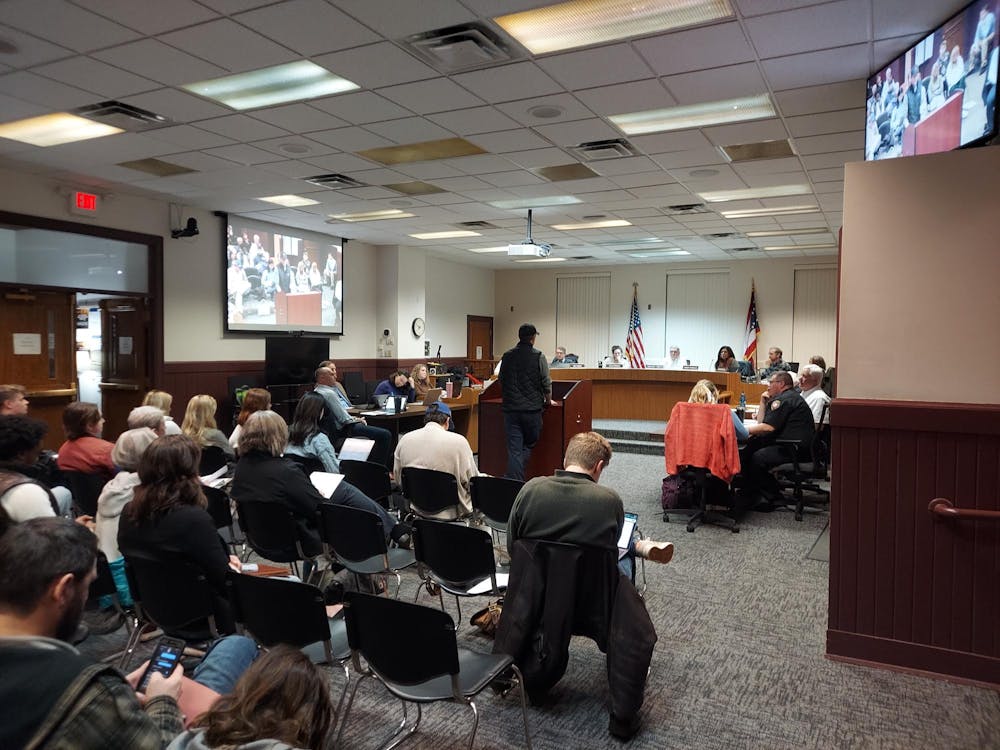Following a public hearing on Nov. 3 and a semester of sessions discussing how to adapt to Senate Bill 1 (S.B. 1), the Miami University Senate officially approved a new Enabling Act created by the ad hoc committee. The Enabling Act revisions will go before the Board of Trustees at their next meeting in December.
The ad hoc committee, led by Media, Journalism and Film Department Chair Rosemary Pennington, was also tasked with proposing revisions to the curricular approval process. Pennington presented these changes, which would allow the senate to have an earlier say in the approval process than they do currently. The University Senate approved the revisions.
“I’d like to note my gratitude to all of you for your patience with senate this semester, as we know this is a time of considerable change for this body,” Nathan French, vice chair of senate and chair of the senate executive committee, said. “Our vote for the Enabling Act revisions today herald the beginning of a series of changes to how this senate will function at Miami in the years ahead. At our Dec. 1 meeting, the senate executive committee will present to you an agenda for our ongoing renovations to this body that will extend across the entirety of the spring semester.”
These revisions are just the first step to a great deal of change to come for the University Senate. However, they did not completely take away the concerns regarding S.B. 1.
Cathy Wagner, a professor of English and member of the Faculty Alliance of Miami (FAM), spoke about her worries regarding the Advance Ohio Higher Education Act. Wagner specifically focused on how faculty input is not included in the post-tenure review process, calling it dangerous.
“Is that bad? Is it dangerous? Yes, it is. Absolutely, it means that if you’re, say, a history professor who publishes books, [if] your productivity is deemed insufficient because they want you to publish articles, there won’t be a disciplinary person necessarily to weigh in,” Wagner said. “So we will have to count on our administrators working well for us, and I don’t think that’s enough. We need more than that.”
Enjoy what you're reading?
Signup for our newsletter
Wagner called on University Senate members to unite and focus on making change. She suggested paying attention to the legislature's stances on education and pushing them towards repealing the law.
“It is a terrible, terrible law that is going to damage the credibility of Ohio higher education,” Wagner said. “So what can we do? I encourage you to join your union. I encourage you to work in other ways, to combine with people, to build power so that we can do something about this and preserve higher education in the state of Ohio.”
The University Senate continued with new business. Melissa Thomasson, associate vice president for strategic initiatives and professor of economics, presented a preliminary proposal on the restructuring of Miami’s regional campuses toward a polytechnic structure. It carries the goal of increasing enrollment by focusing on areas highly aligned to Ohio’s workforce needs.
Senate members expressed concern for faculty being physically moved or laid off because of this. Thomasson reassured the senate that this is not the only time when change has occurred for the regional campuses, and she said her report will entail a firm commitment to faculty.
“I know and you know this is a time of huge uncertainty in higher education,” Thomasson said. “This isn’t the first time we’ve decided to do something different as a regional.”
The senate declined to recommend a previous proposal on the matter of the graduate school’s administration of graduate awards, which was previously proposed by Jason Abbitt, professor of educational psychology and associate dean of the graduate school, at the meeting on Oct. 20.
The senate also went into executive session to deliberate on proposed candidates for honorary degrees.
The University Senate's next meeting will be at 3:30 p.m. on Dec. 1 in 111 Harrison Hall.




